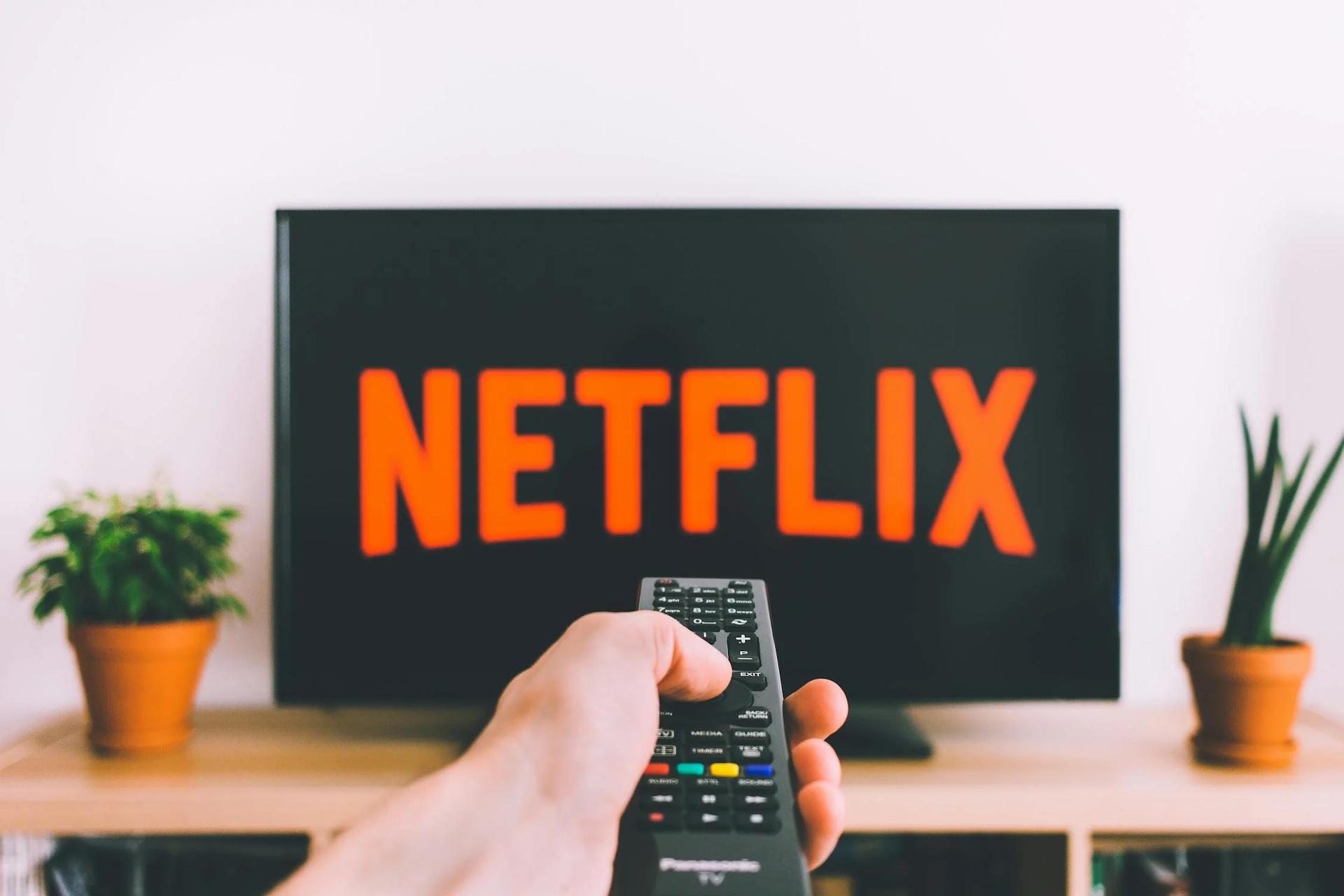Netflix has emerged as the predominant choice for most people when it comes to watching films and TV at home. Despite implementing price hikes and introducing ads over the past year, Netflix continues to dominate the streaming wars.
However, you might want to double-check how much you are paying each month as this state plans to tax the streaming service.
Maine Proposes a Streaming Tax

Maine’s governor proposed a new budget that could tax streaming services. According to a survey done by Forbes, 99 percent of American households have at least one streaming service.
This means that the 1.3 million residents in Maine could be paying a tax on all of their streaming services.
The Tax Currently Covers Most Online Sales

Right now, the current legislation in Maine states that a service provider tax applies to cable TV, satellite TV, and online sales of movies, TV shows, and music. However, this tax does not reach the dominant way of watching: streaming services.
Maine Governor Janet Mills’ budget proposal aims to broaden the tax code to include streaming services, recognizing the declining popularity of cable providers.
Streamers Are the Only Ones Not Paying State Taxes

At present, service providers are subject to approximately six percent in taxes, whereas users are required to pay the state’s 5.5 percent sales tax on purchases of movies, music, or albums. While purchasing entertainment incurs a fee, streaming costs have remained exempt from taxation.
The bill will impact both service providers and customers, requiring customers to pay taxes on each streaming service they subscribe to, including Netflix, Amazon Prime, and Disney+.
Your Monthly Subscription Will Increase

The proposal calls for a 5.5 percent tax on streaming services and customers. The streaming service subscription payment will include the tax.
While you might be paying $20 a month for your current subscription of choice, you might see the price jump up to $21.10. It isn’t a dramatic change, but it is still noticeable when you are paying for more than one streaming service.
Why Is Maine Taxing Streamers?

Maine’s decision is not illogical by any means. While the streamers have kept their profits and data under tight lips for years, the past strikes during the summer of 2023 have created some transparency about how much streamers are making.
Netflix made $5.4 billion in profits last year, which Tony Yiu states is about $21 of profit per subscriber.
Streaming Isn’t As Profitable as Cable

While streaming isn’t as profitable as cable, there are not many young people who are willing to choose a cable package over physical media or a streaming service of their choice.
Maine seems to understand this and hopes to increase state revenue by $10 million per year through taxing streaming services.
This Tax Isn’t a New Proposal

A spokesperson for the Maine Department of Administrative and Financial Services, Sharon Huntley, told Newsweek that this proposal isn’t a new idea.
This is the state’s third time proposing the tax. “On March 6, the Legislature’s Committee on Taxation held a work session about the proposal. Ultimately, the Committee voted in a bipartisan fashion (7-1)—including Republicans—to include the proposal in the supplemental budget,” Huntley explained.
Taxing the Digital and Physical Goods and Services

Huntley states that the proposal will help tax that mixed bag of digital and physical goods and services that have become staples in day-to-day life in the United States.
“More specifically, the proposal addresses the uneven mix of taxation of digital goods and services under current law to, instead, apply the sales tax more simply and equitably across the different forms of platform delivery, purchase, and use such as by entertainment streaming and subscription services,” Huntley said.
Who Voted on the Bill?

The Taxation Committee voted in favor of the bill, with one person on the committee voting against the bill.
The committee’s lead Republican, Rep. Micky Carmicheal, R-Greenbush and Rep. Tomas Lavigne, R-Berwick, voted in favor. Rep. Tracy Quint, R-Hodgdon, opposed the bill, while Libby and two other Republicans, Rep. Laurel Libby, of Auburn, and Rep. Shelley Rudnicki, of Fairfield, were absent.
One Voter Pushes Back

“Guess who gets hit? My constituents,” Sen. James Libby, R-Standish, said at a news conference Tuesday (via the Portland Press Herald).
Libby continues: “My constituents are all getting hit with a download fee (tax) on anything they do that is subscription-based.”
The Tax Punishes Netflix, Not You

Maine Isn’t the Only State Taxing Streamers

Maine is not the only state that is planning to tax streaming services. 25 other states have proposed a similar tax to Maine’s.
In Florida, a tax on Netflix has already passed and gone into effect this year. The service and customers saw a 5.07 percent jump in the monthly subscription prices.
Netflix Notifies Florida Subscribers About the Tax

Netflix emailed Florida subscribers in February with a one-week notice that there would be an “additional state services tax” on their bill.
The tax is the same as the one in Maine, called the communications services tax.
The Tax in Florida Is Already in Effect

“We’ve notified our members in Florida that they will start to see state services tax applied to their monthly bill beginning February 15,” a spokesperson from Netflix told FOX 35.
“Netflix subscriptions in Florida are subject to both local and state tax as part of the Florida Communications Services Tax,” the spokesperson added.
Other Streamers Are Already Being Taxed in Floria

However, the streaming service tax is nothing new to Florida watchers. Streaming services like Hulu and Disney+ have already been charging it.
“The supplemental budget proposes to streamline, simplify, and modernize provisions of the sales tax to better align it with the practice of other states across the country,” Huntley said of the tax.
Streamers Are “Notorious Corporate Tax Avoiders”

The Institute for Policy Studies and Americans for Tax Fairness, which conducted an analysis of executive compensation data, focus on companies labeled as “notorious corporate tax avoiders.”
Their findings revealed that 64 companies paid their top five executives more than what they contributed in U.S. taxes for at least two out of the five years under scrutiny.
Executive Pay Is Out of Control

Large companies like Netflix paid their executives more in compensation than they paid in federal income taxes between 2018 and 2022, according to a report from the Institute for Policy Studies and Americans for Tax Fairness, two nonprofits that support tax reform.
“It’s no coincidence that some of the nation’s most notorious tax dodgers also pay their executives too much,” the report’s authors writes.
Netflix Wants You to Know They Pay Taxes

According to the report, Netflix paid its five top executives $652 million between 2018 and 2022, while only paying $236 million in federal income tax in the same years.
The streamer responded, saying, “Netflix complies with tax laws and regulations in the US and around the world. From 2018-2022 we paid global income taxes in excess of $2B and in 2023 we paid nearly $1.2B in global income taxes, the majority of which was US federal income tax.”
The IRS Is Trying to Crackdown on Executives “Tax Efficiency”

“Executives are rewarded for ‘tax efficiency’—the euphemism for corporate tax dodging—which is often an easier way to raise profits than by creating goods and services more customers want to buy,” the report’s authors write.
The IRS is lobbying for increased funding to go after corporations that enable wealthy individuals to cheat on their taxes. In response, states are implementing their own measures to crack down on tax cheats.
Tax Rates Allow Netflix to Avoid Some Taxes

Senior fellow at the nonpartisan American Enterprise Institute Kyle Pomerleau said that low corporate tax rates are what allow companies like Netflix to reduce their tax burden.
“These low effective tax rates are not reflective of tax evasion,” Pomerleau tells USA Today. “It’s tax avoidance. Tax evasion is illegal. Tax avoidance is legal.”
States Are Doing What They Can

According to Pomerleau, many corporate tax breaks, including research and development tax credits, target activities that have a wide-ranging positive impact on the economic landscape.
With states like Florida and Maine taxing Netflix, the corporation is looking to avoid paying the taxes with their current revenue. This means you have to pay the price.
Closing the Gap

While Netflix executives have been enjoying a rather generous payday over the last several years, the agency is ready to see that “lavish corporate compensation packages and inadequate corporate tax payments are not unrelated phenomena” in the future.
While the tax with had a five percent increase to your monthly bill, Netflix has been increasing prices and cracking down on password sharing for sometime.
Netflix Explains the Price Hikes

“We seek to provide a range of prices and plans to meet a wide range of needs, including highly competitive starting prices,” Netflix said in a quarterly letter to shareholders.
The statement continued: “As we invest in and improve Netflix, we’ll occasionally ask our members to pay a little extra to reflect those improvements, which in turn helps drive the positive flywheel of additional investment to further improve and grow our service.”

